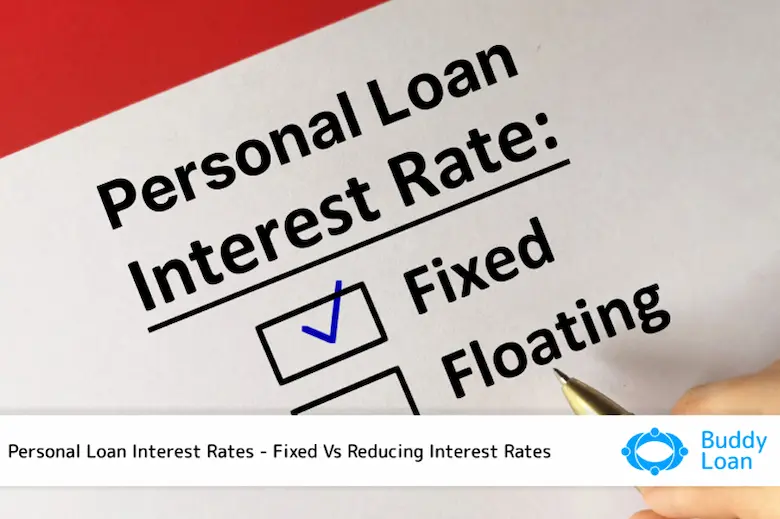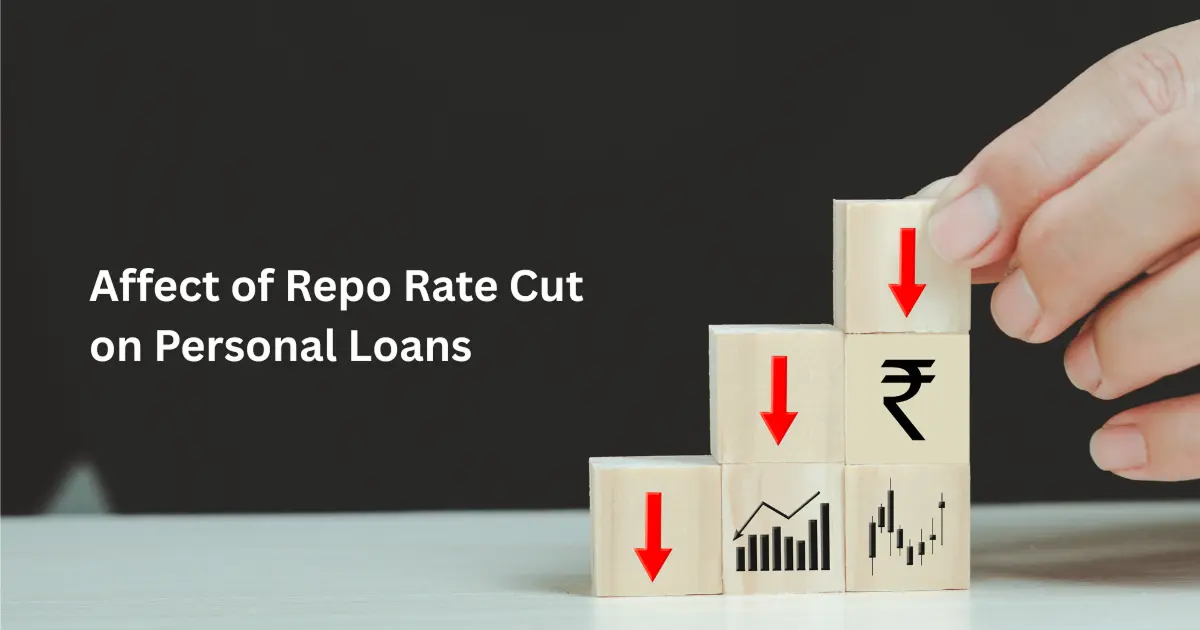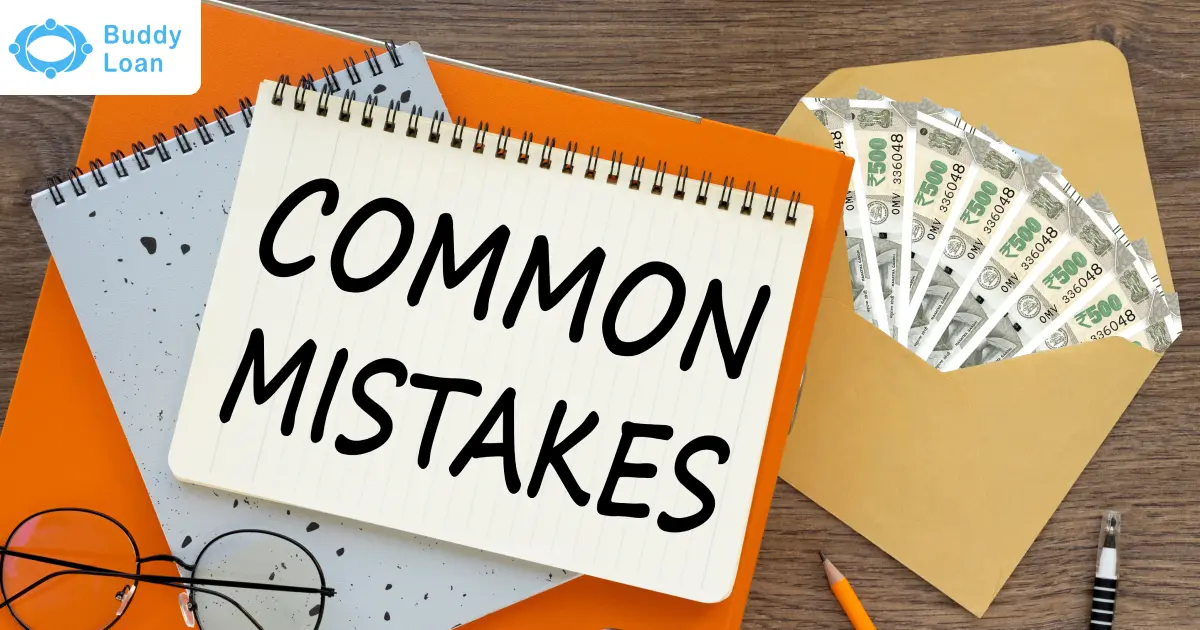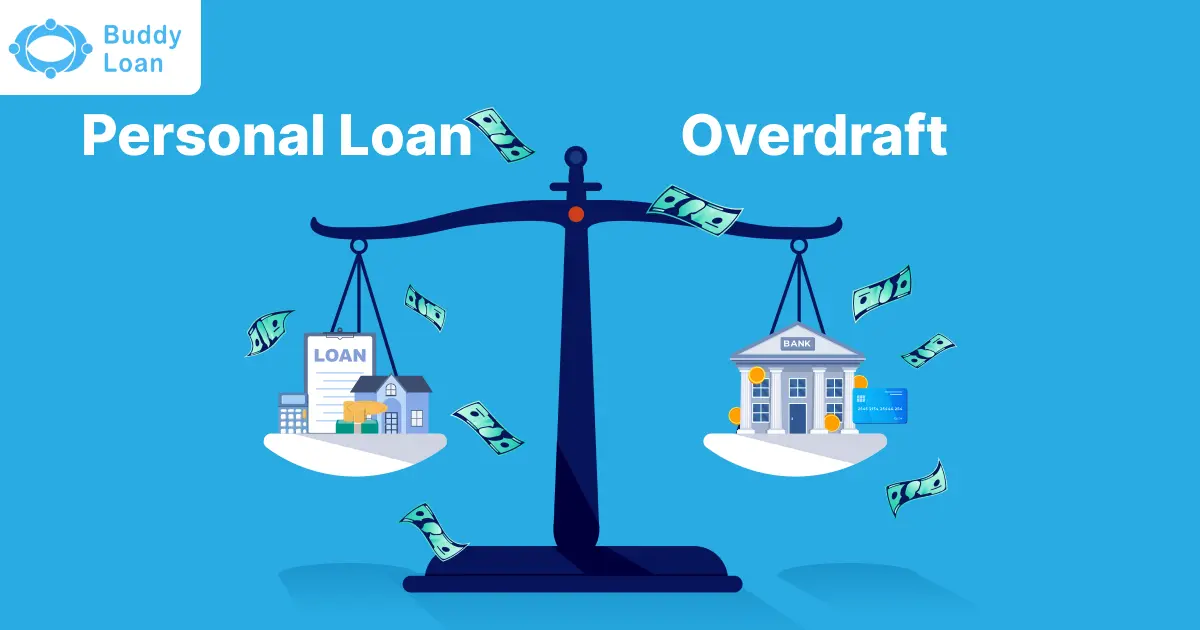Personal Loans are a great way to finance your immediate needs as it does not require any collateral. However, the interest rates for personal loans may vary depending on the bank or the lending institution. These interest rates are based on your credit score, age, loan amount and loan tenure. Depending on your eligibility, some banks may offer personal loans at low-interest rates. And, there are 2 types of personal loan interest rates: fixed interest rates and reducing interest rates. Hence, before you apply for a personal loan, you must compare the interest rates offered by various lenders and choose the one that suits your financial needs.
This article will give you deep insights into what a personal loan is and the types of interest rates. By the end of this article, you will have a better understanding of how you can get a personal loan at low-interest rates.
What is a Personal Loan?
A personal loan is an unsecured loan that covers sudden financial needs such as medical, wedding, travel, etc. Since it is unsecured, you can avail of this loan without collateral. Moreover, you can repay the loan through flexible EMI with a tenure period from 12 months to 60 months. Apart from this, lenders will first check your credit score to determine your repayment ability before approving your loan. Your credit score plays a vital role in determining loan approval. Hence, having a score above 750 increases your chances of getting a loan at lower interest rates.
Reasons To Avail of a Personal Loan
You can avail of a personal loan for various purposes.
If you have,
- Sudden medical emergencies such as accidents, surgeries, or chronic illness.
- Want to expand your existing business or launch your new business?
- Going to renovate your home to increase its economic value.
- Have wedding expenses.
- Have a dream destination to travel to.
Eligibility Criteria For a Personal Loan
The eligibility criteria may vary from lender to lender. The table below shows the general eligibility criteria to qualify for a personal loan.
| Sl.No. | Particulars | Description |
| 1 | Nationality | Indian |
| 2 | Age | 21 to 60 |
| 3 | Employment Status | Employed or Self-Employed |
| 4 | Minimum Income | INR 20,000 per month |
| 5 | Work Experience | Min 1 year completed |
| 6 | Credit Score | Above 750 |
Documents Required For a Personal Loan
- Identity: Aadhar Card, PAN Card, Driving License, Passport
- Address: Electricity Bill, Water Bill, Passport
- Income: Salaried: Bank statement for the past six months and Self-Employed: Bank statement of the past three months
- Work experience: Employment Certificate for a minimum of 1-year experience
Types of Personal Loan Interest rates
Interest rate is the rate at which the bank or the lending institution offers a loan amount. It acts as an income to the bank when they lend the loan amount. There are two types of interest rates on personal loans, namely fixed interest rates and reducing interest rates. Let us have a brief overview of both interest rates.
Fixed Interest Rates
It is also known as flat interest rate. This interest rate is fixed and does not change throughout the loan tenure. The lender decides the fixed interest rate based on the average discount rate over the loan period. The main benefit of a fixed interest rate is that your repayment liability will remain consistent throughout the loan tenure. As a result, you can plan your repayments.
Formula to calculate fixed interest rate: Interest to be paid on each instalment = (Loan principal amount x total tenure of the loan x interest rate per annum)/total of instalments
Reducing Interest Rates
Reducing interest rate is also known as a variable interest rate. This type of interest rate changes regularly according to the Reserve Bank of India’s repo rate changes. Here the interest amount accrued will also vary based on the outstanding principal loan amount depending on the effective lending interest rates.
Also Read: RBI Repo Rate Cut 2025 RBI’s Surprise Boost for Borrowers
Formula To Calculate Reducing Interest Rate
Interest to be paid on each instalment = The remaining loan amount x the interest rate applicable for each instalment.
Difference Between Fixed Interest Rate and Reducing Interest Rate
The following table gives an outline of the difference between fixed vs reducing interest rates.
| Criteria of Difference | Fixed Interest Rate | Reducing Interest Rate |
| Basis of Calculation | Interest rate is calculated based on the principal amount approved. | Interest rate is calculated based on outstanding loan amount. |
| Effective Interest Rate Equivalence | Fixed interest rate calculations results in higher effective interest rate equivalence. | Reducing interest rate calculations reflects the initial effective interest rate. |
| Rate Comparison | The interest rates are fixed at low percentage. | The interest rates are fixed at comparatively higher percentage. |
| Simplicity of Interest Calculation | Interest calculation is simple and straightforward. | The interest calculation is comparatively complex.. |
| Loan Tenure | The loan tenure is longer. | The loan tenure is comapretively shorter. |
Pros & Cons of Fixed vs Reducing Interest Rates
Both fixed and reducing interest rates have their pros and cons. Here are some of the points explaining the pros and cons.
Fixed Interest Rate
Pros:
- The monthly EMI that you will pay stays the same with time.
- It helps you to manage and plan your monthly budget.
- The interest rate is comparatively lower. Hence, it can be beneficial for individuals with lower loan eligibility.
- The loan repayment tenure is flexible and more extended, making the repayment more manageable.
Cons:
- You will have to pay the same interest rate throughout your loan tenure even if the banks reduce the interest rates.
- The EMI amount is also higher.
Reducing Interest Rates
Pros:
- The interest you pay will decrease over time as it is calculated based on the outstanding principal amount.
- The amount of interest paid will gradually become less than that of a fixed interest rate.
Cons:
- The calculation for interest rates is more complicated than the fixed interest rate.
Also Read: Fixed Rate vs Variable Rate Choose Personal Loans with Better Flexibility
Factors That Affect The Interest Rates of Personal Loans
Lenders set interest rates based on their risk of lending the loan. Here are a few key factors that can impact your loan interest rates:
Credit Score
Lenders give importance to your credit scores when setting the interest rates of loan applicants. So if you have high credit scores, you can quickly get personal loans at lower interest rates than others. Hence, always maintain a credit score of 750 and above. If you have a poor score and want to improve it, you must build good financial habits, such as repaying your debts on time, avoiding applying for multiple loans or credit cards quickly, etc.
Also, note that errors in your credit report can affect your credit score. Therefore, you must check your credit score regularly to identify potential errors and take precautionary steps to avoid adverse effects on your credit score. To prevent your credit score for free, you can use Buddy Score and get an instant credit report. Doing this will help you keep track of your credit health and also help in getting personal loans at lower interest rates.
Monthly Income
A higher income represents a higher ability to repay the loan. Ain’t it? But, It also shows that you are a low-risk borrower for the lender. Thus, many lenders will be ready to offer personal loans at low-interest rates if you have a higher income.
Employer
Lenders usually consider your employer profile while setting your interest rates. Generally, salaried individuals are charged low-interest rates compared to self-employed individuals. And if you are from the government or PSUs, lenders will be ready to offer you lower interest rates on your personal loan as it has higher job security and income certainty.
Existing relationship with your lender
Few lenders offer personal loans at lower interest rates if you are an existing bank or lending institution customer. Hence, if you are planning to avail of personal loans, contact the banks/NBFCs with whom you have already taken a loan and have an existing relationship for offers on your interest rates.
Also Read: Latest Personal Loan Interest Rates in India
Tips to Manage The Payments of your Personal Loan
Although a personal loan is easy and convenient, it is essential to consider your financial situation before applying. If you miss out on any payment, it will reduce your credit score and affect your credibility. Hence, consider the following factors before applying for a personal loan.
Identify your need For a Personal Loan:
It is essential to know your need and requirement for a personal loan so that you will have a clear idea of how much you need. Hence, you can avoid taking a loan amount of more than what you need.
Plan your Budget:
Plan and budget your loan amount before applying. You can do this by calculating your EMI from websites available online. It will also help you to compare the interest rates, tenure, etc., offered by various banks, thereby helping you take an informed decision.
Repay your Loan on Time:
Paying your debts before the stipulated time period is essential. You can also set reminders to repay your dues without defaulting. Thus, it will help in improving your credit score.
Use your Loan for Debt Consolidation:
If you have many outstanding debts, you can use a personal loan to clear your past debts. This way, you can remove multiple debts in a single loan at low-interest rates.
Take Professional Advice:
If you are confused about availing the right personal loan for your requirement, it is suggested to take financial advice from different banks/financial institutions /NBFCs that offer solutions to your doubts.
Also Read: Get The Best Personal Loan Interest Rates in India
Summing Up
Although personal loans are a convenient source of financial support, you must thoroughly research the interest rates offered by various banks and lending institutions before applying. And you can choose between fixed or reducing interest rates depending on your ability to repay your loan. You must also maintain a high credit score above 750, as it significantly impacts your loan interest rates. So check your credit score frequently using Buddy Score and keep track of your credit health. Also, take constructive steps to improve your score if you want low interest on your personal loan.
Hence, Buddy Loan is the right platform if you are looking for a personal loan at affordable rates. It is one of the largest loan aggregators that help you get personal loans from top lenders.
Download Personal Loan App
Get a loan instantly! Best Personal Loan App for your needs!!
Looking for an instant loan? Buddy Loan helps you get an instant loan from the best verified lenders. Download the Buddy Loan App from the Play Store or App Store and apply for a loan now!
Having any queries? Do reach us at info@buddyloan.com
Frequently Asked Questions
Q. Which Should I Choose– Fixed or Reducing Interest Rate?
A. Depending on your financial requirements and repayment capacity, you can choose a fixed or reduced interest rate. A fixed interest rate will usually lower and have longer repayment tenure but has a higher EMI set throughout your loan tenure. A reducing interest rate has low EMIs, and short repayment tenure as the interest rate varies and is calculated on the outstanding principal amount, which reduces over time.
Q. Which Factor Impacts The Reducing Interest Rate?
A. The reducing interest rate depends on the bank’s lending rates, which in turn depends on the repo rates set by the Reserve Bank of India (RBI). This repo rate depends on various economic scenarios, both domestic and global.
Q. How to Calculate EMI for the Entire Loan Tenure Before Taking the Loan?
A. Understanding and calculating your EMIs beforehand is essential to know your overall loan expenses. You can do it with a manual calculation. However, it is best to calculate with one of the free online EMI calculators, as it will give you detailed information for your entire loan tenure based on your loan amount, loan tenure, and interest rate.




